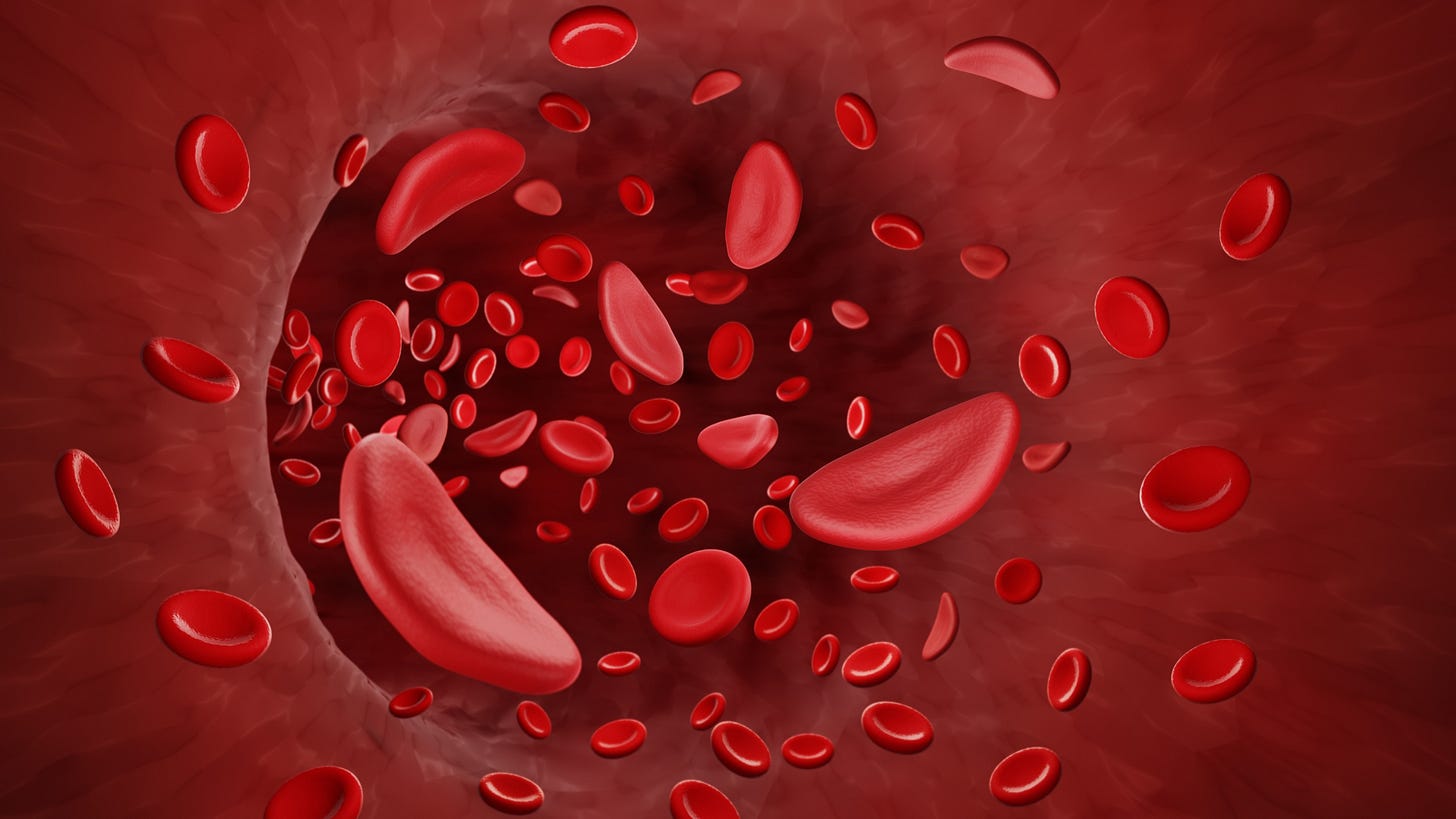What is Sickle Cell Disease?
Written by Aanya Deshpande
Sickle cell disease (SCD), also known as sickle cell anemia, is an inherited disorder affecting the shape of red blood cells (RBCs) and hemoglobin, the primary protein that carries oxygen within RBCs. RBCs are usually disc-shaped and very flexible so they can easily pass through blood vessels. However, with SCD, RBCs become crescent-like, or sickle-shaped, due to gene mutation. The sickle-shaped cells are not as flexible as regular RBCs, so they can not pass through blood vessels as easily and usually block blood flow. SCD affects about 100,000 people, and 9 out of 10 who are affected by SCD are of African descent in the United States.
Since SCD is an inherited disorder, it means one can only be born with it. Since SCD affects the body, it affects what types of symptoms a person gets. People who inherit the hemoglobin S gene also inherit the sickle cell trait but usually do not experience any symptoms of SCD. However, they can still pass SCD to their biological children. Symptoms of SCD can vary and alter over time. Early symptoms of SCD include having a yellowish skin tone (jaundice) or the outside of the pupil (icterus). The yellow tone occurs when RBCs undergo hemolysis. Other symptoms include fatigue or extreme tiredness and swelling of hands and feet. Fatigue occurs due to the anemia SCD induces, which also occurs due to a lack of oxygen because of unhealthy RBCs.
More severe symptoms of SCD are considered emergencies and must be medically treated. These symptoms include severe pain, extreme fatigue, high fever, chest pain, shortness of breath, sudden weakness or numbness. If one is experiencing a fever of above 101.3 degrees Fahrenheit, or 38.5 degrees Celsius, it is better to seek medical attention immediately. Some may need to be hospitalized for care. Chest pain and shortness of breath may occur when acute chest syndrome requires hospital treatment. Treatment may include oxygen therapy, antibiotics, or a blood transfusion. Sudden weakness or numbness on one side of the body may occur due to a stroke, so it is best to call 911.
References
https://www.nhlbi.nih.gov/health/sickle-cell-disease https://www.nhlbi.nih.gov/health/sickle-cell-disease/symptoms
Written by Aanya Deshpande from MEDILOQUY


